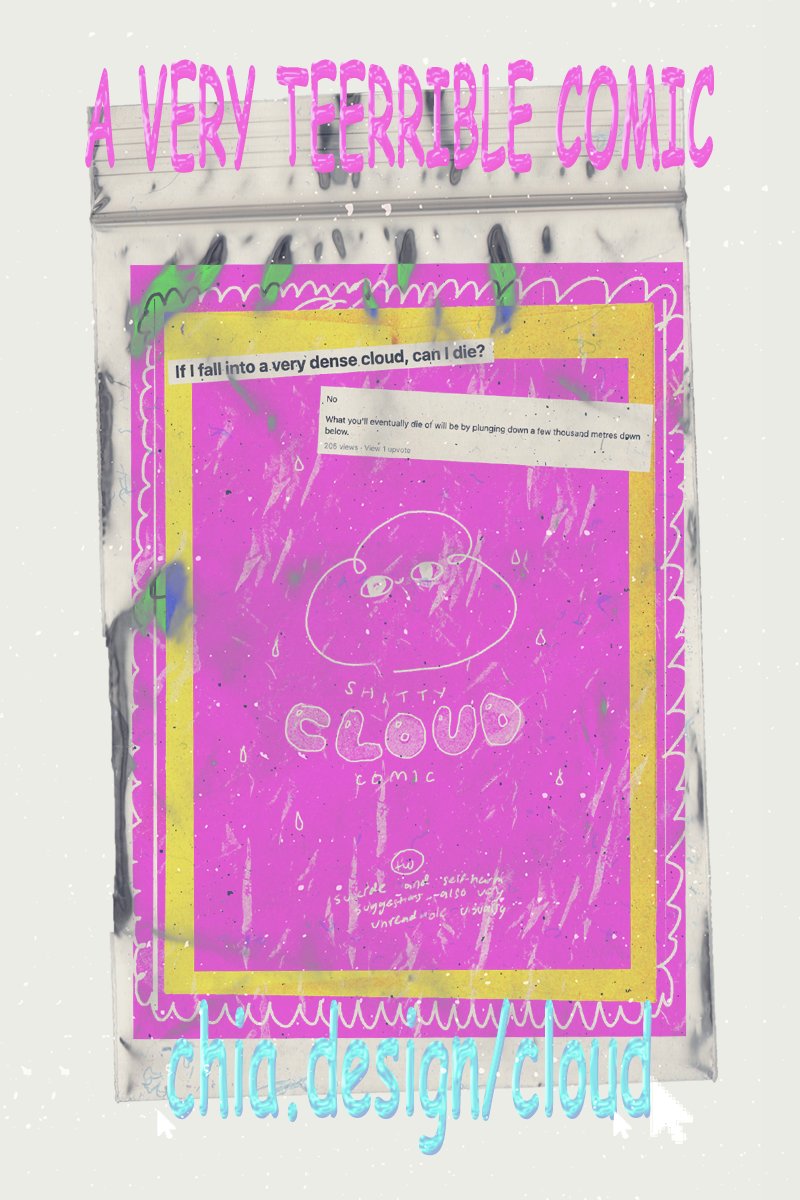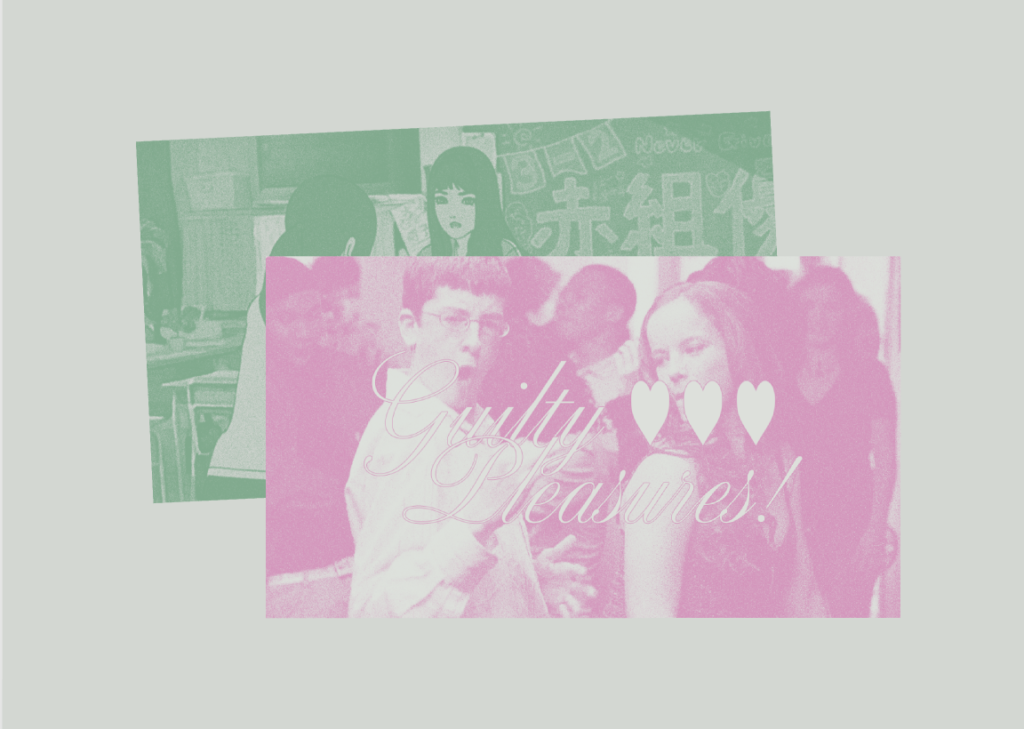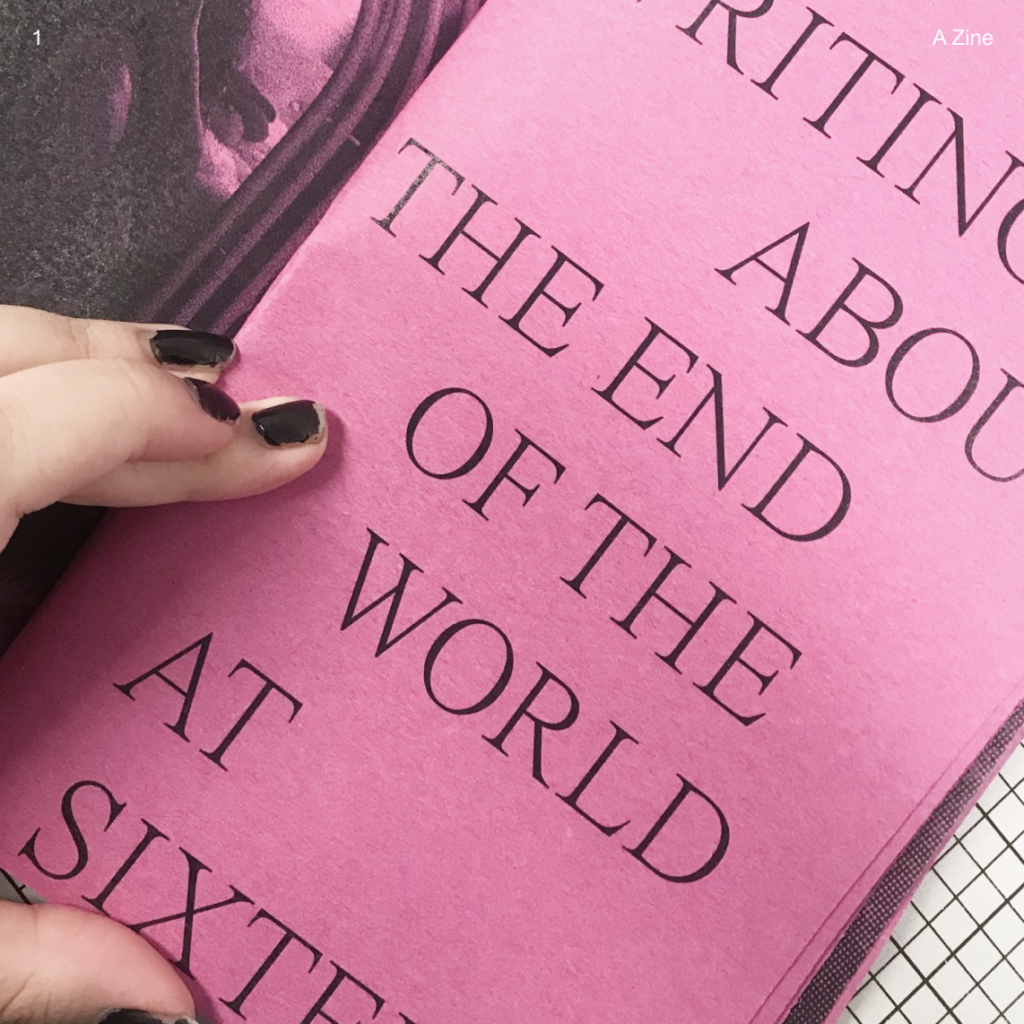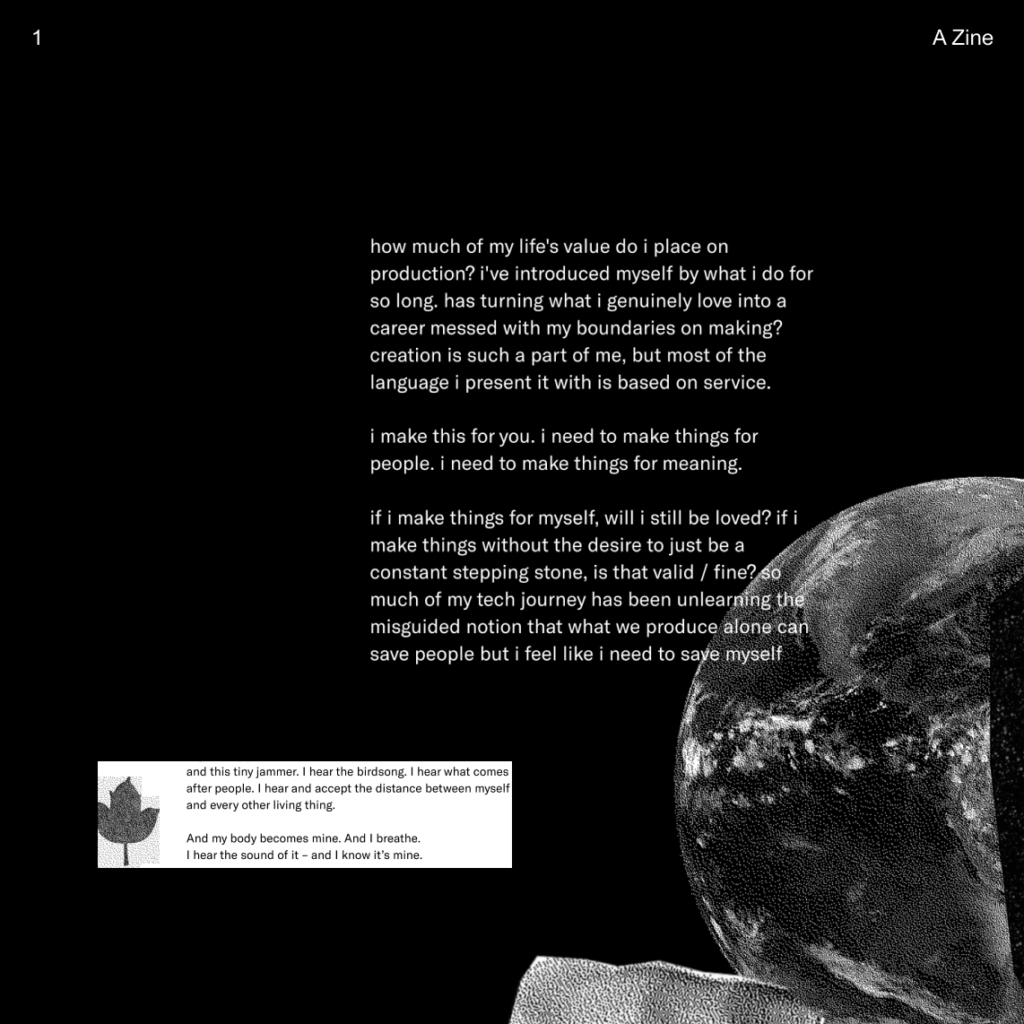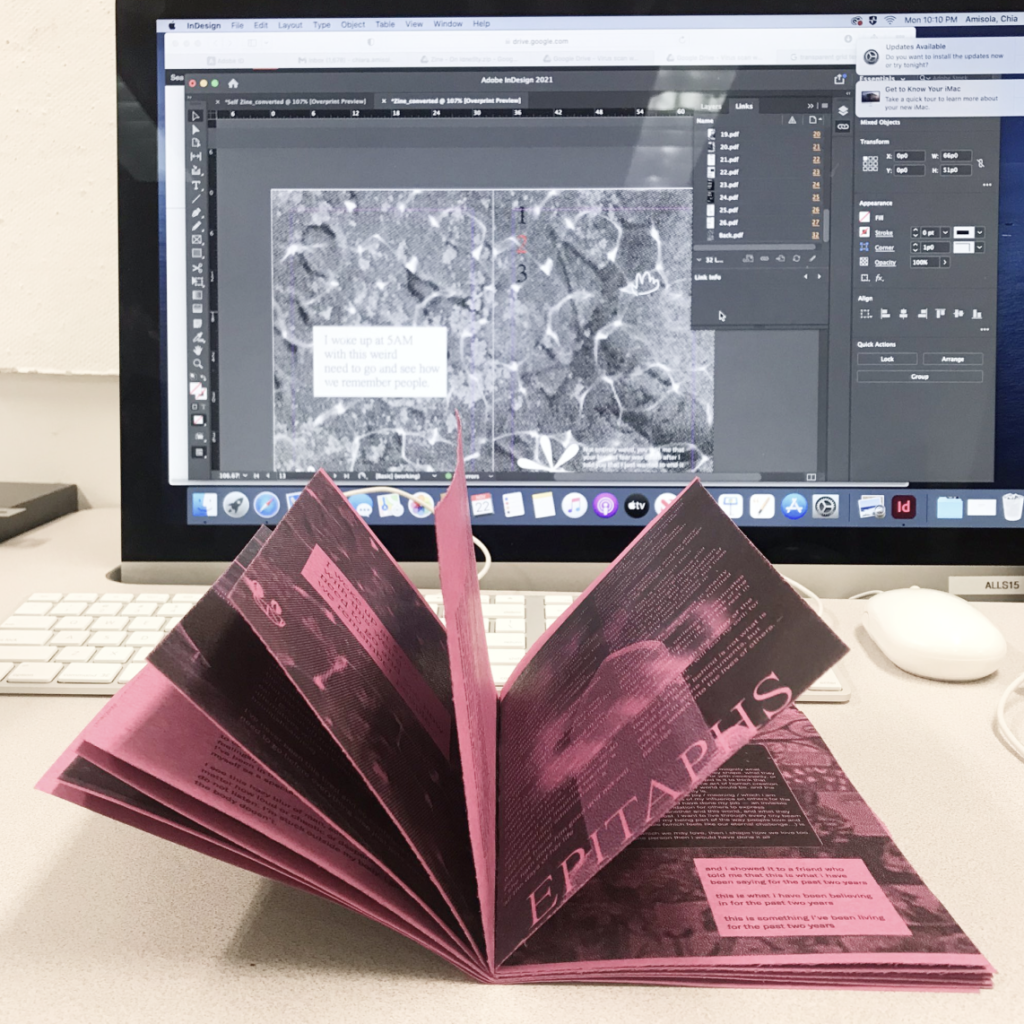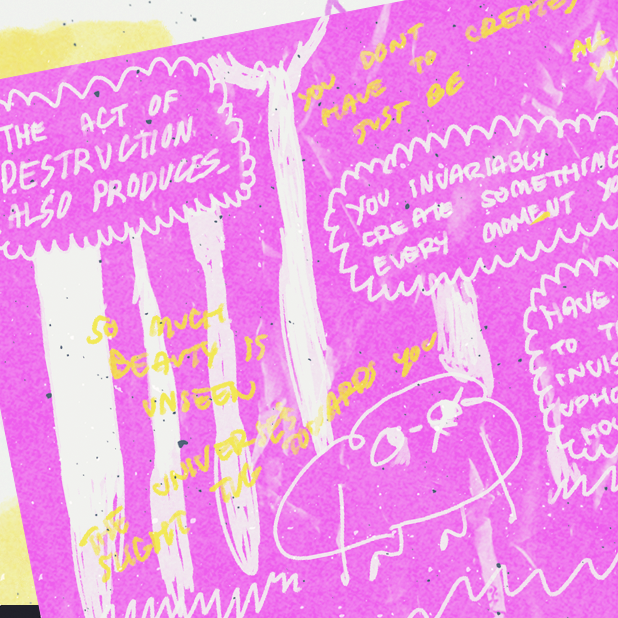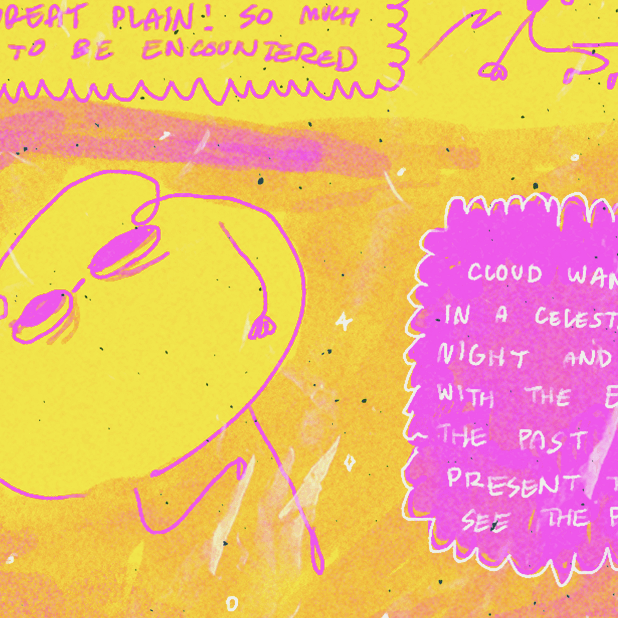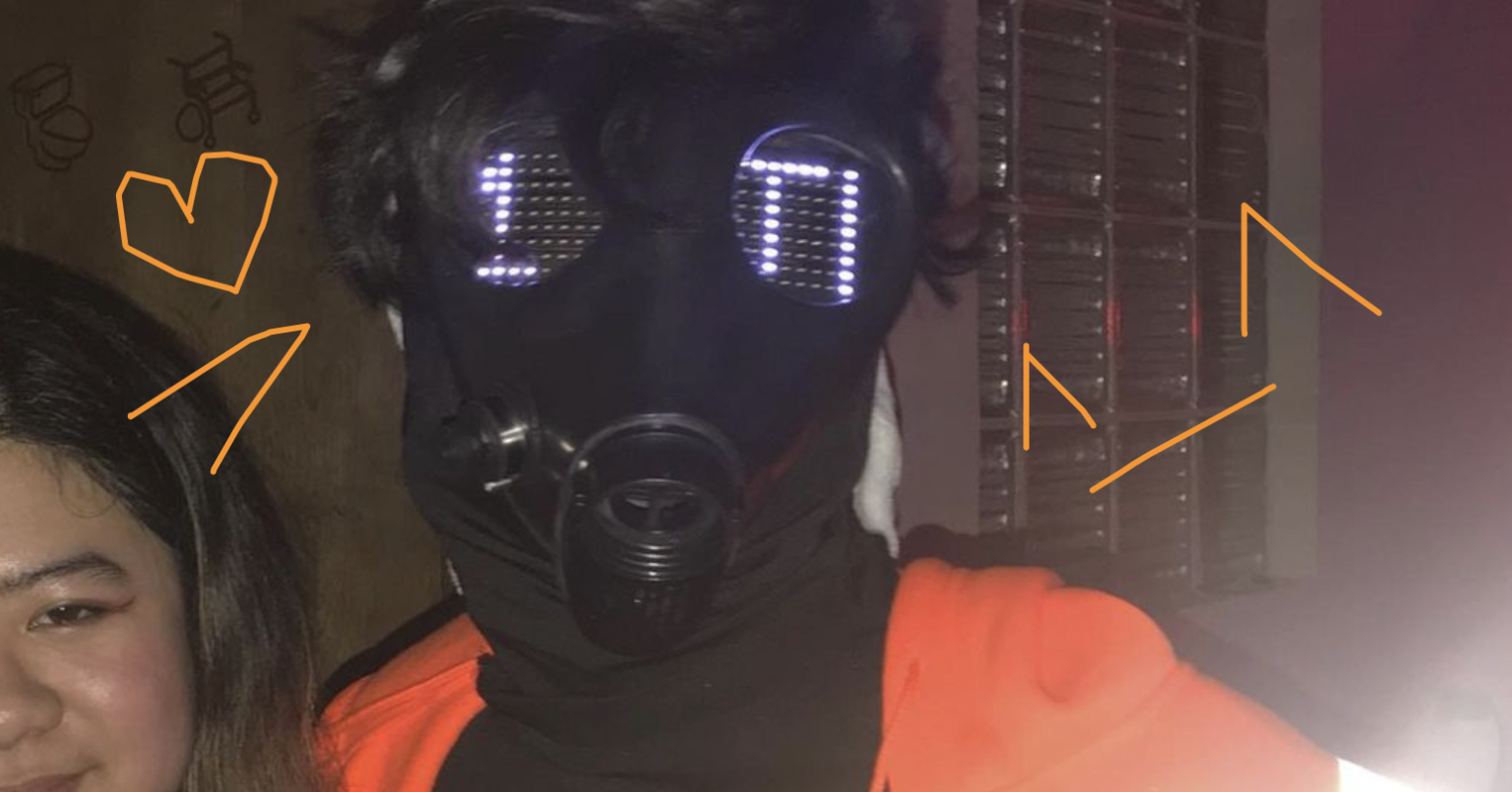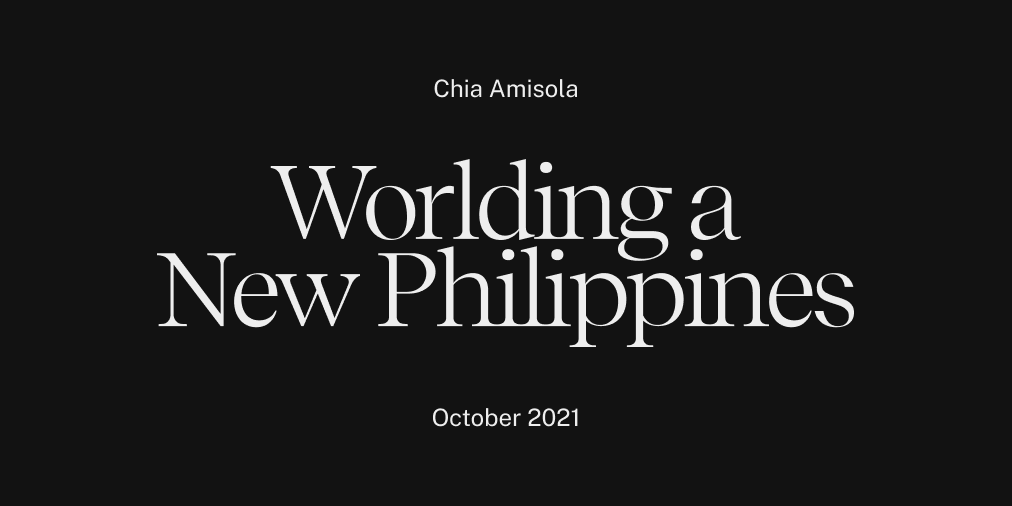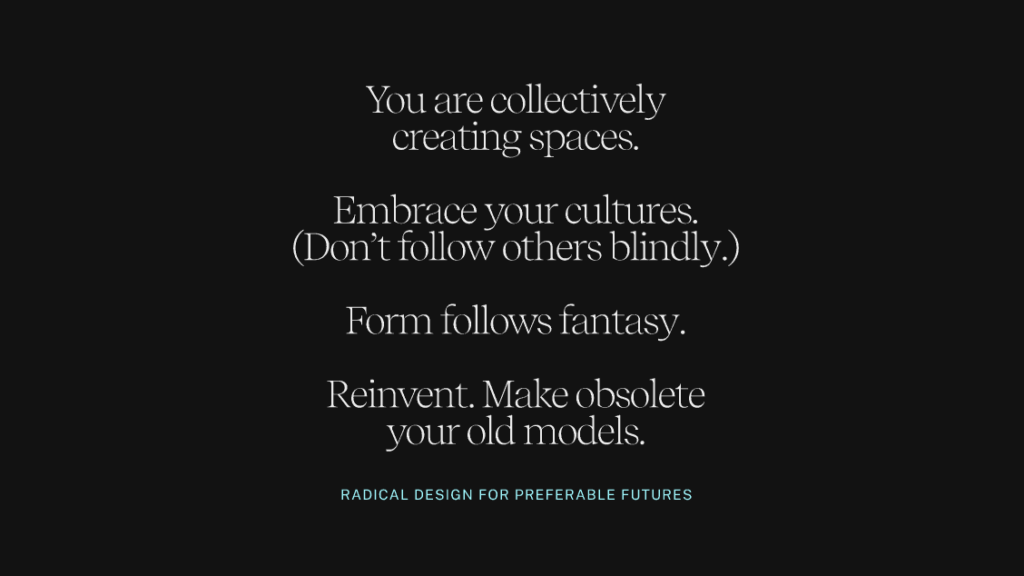Reading Time: 13 minutes
I’ve been thinking a lot about what principles and values can be learned from fantasy and the culture of makership/creation that has come as a result of fandom all too often cast aside. From that, I’ve been drawing from personal experiences and observations running Developh to reconsider This talk was delivered under the theme of ‘Innovation and Vision’ for Emerge, a webinar for 450+ collegiate-level student leaders of Alangilan. No recording unfortunately, but here’s the script and slide deck for those who might be interested!
View the slide deck on Figma
View the talk script on Google Docs
Worlding a New Philippines
Worlding A New Philippines – Radical Design for Preferable Futures is a little talk about how I’ve altered my views of leadership through a lens I learned in design, and a bit from fantasy and the unexpected.
What does this title even mean?
- Worlding (or worldmaking) – The ways which we collectively make the spaces we inhabit through collective practices
- Preferable futures –– Futures that we positively hope for and work to create based on our hopes, aspirations, and dreams – embodying our notions of what a better world might look like.
First, I want to walk through some of my principles as a technologist that can be told through my work. Another thing is that in any org or community you find yourself in, it’s of vital importance to stick to your principles––if not in presence, in the actions and approach you take things in. I’ll talk about this more shortly.
- Accessibility at Spotify – how Spotify and similar platforms have changed
- Filipino Creatorship –– the significance of cultural context, and how to embrace companies putting localities at the forefront of their work
- Collaboration and co-creation at Figma –– democratization as a core goal, the potential of viewing everyone as a designer
- Developh Camp –– introducing artists and technologists to each other’s fields, embracing the importance of intentionality, identity, and making
So what does this deal with?
- Building a vision towards community building
- Shedding misconceptions on technology
- Introducing a framework for org development by worlding
In summary, these can be traced to these three core principles:
- Culture – heritage, history
- Community – co-creation, identity
- Creation – technology, platforms
I also want to give a warning. You’ll have to suspend disbelief a bit for the talk; and this oftens frameworks and processes more than one-off quotes. Like everything you consume, take it with a grain of salt and compare it to the reality you love.
I. Worlding
Worlding in the Realm of Fantasy
- Think about one of your favorite fictional worlds.
- We see most of these worlds as objects as fantasy and obsession; at other times we picture ourselves living in them. We imagine alternate endings for shows and movies that we’re disappointed by, think about the additional depth and richness that we could access if our favorite mangas were turned into worlds. …Or disappointment at it.
- I know how all of these feel. I find myself entranced by the creation of fantasy worlds. At first, i thought these were just hobbies – things that could stay in stan twitter, until i realized the gravity and depth of what they were actually teaching me.
Here’s my personal case study:
- One of the things I’ve enjoyed most over the pandemic is Genshin Impact. Yes, the gacha game optimized for mobile (for gamers, that’s a telltale sign of a game being a pay-to-win sellout) that makes use of RNG mechanics to see susceptible teenagers like me anime girls. More specifically, I’ve been interested in it because of its lore.
- Here’s the gist of its story. No spoilers here. You play as one of two twin travelers arriving in the world of Teyvat, where seven gods each assigned to an element rule over seven nations. In the beginning, you encounter an Unknown God who seals away your twin; you wake up an unknown amount of time later to search for your sibling––searching across the nations.
- And in writing, Genshin Impact draws a lot from Gnosticism; concepts such as visionhood that link to allogenehood and ascension pop up. But also Jewish Mysticism, parallels to the Tower of Babel, but also Hermeticism in the roots of power. The Unknown God encountered in the beginning is the god that sustains heavenly principles, or Tianli in Confucianism.
- And by nature of the seven natures paralleling real-world nations, a lot more specific parallels from Norse mythologies, Shinto, Taoism, to Buddhism recur over and over.
- The point of me nerding out is to hammer how this made me think a lot about how religion and institutions work. Trade-offs and ethics, the world being morally gray. Essentially, a lot of the same questions in our world posed in unreality and fiction.
- I was so engrossed in the cultures and myths this game drew from that I even started working on archive its work through the Khaenri’ah Lore Project (http://khaenriah.com).
But ‘worlding’ doesn’t necessarily have to exist in completely fictional systems, it can exist in systems like ours that draw extensively from unreality.
Let’s take a step back from fantasy first. What even is the point of this, you might ask––I exist to solve real problems.
On solving ‘real problems’
- First, you may be wondering why I’m even talking about Genshin Impact. You are a fantastic set of student leaders (every one, even if you consider yourselves followers) who have went through a pandemic––maybe some of you #relate to the Genshin stuff, but others might even be shocked at the notion of having enough time to consider games or fantasy when the real world is ablaze. This isn’t wrong, and is a view I would share, too.
- But there’s things we can learn from fantasy. See: a lot of work and discussions revolve around ‘real problems’ and what’s occurring in the ‘real world’. What’s happening in practice rather than theory, what is happening on the ground rather than in the bubbles of social media.
- We have this deep obsession with what is happening in the ‘real world’––but what if fantasy can teach us things?
- I named countless lessons about culture, history, languages, and mythologies that Genshin Impact has taught me––it’s made me grapple with the concept of power in the form of gods, and helped me meet people all over the world. Fiction is a transformative force.
- When we believe in something at odds with the worlds around us, it’s so easy to dismiss it and say that the lessons that can be undertaken would never happen here. As a result, we end up dismissing the lessons and values of what it can teach us when there are so many complex systems that can from it.
- See, we all know that we are meant to solve real problems. Doing thesis papers, you spend a meticulous amount of time reviewing related literature and building upon a former body of work when you might be eager to just jump in and start working on your thing.
- I don’t blame you for when this happens, because we work under unimaginable constraints. It’s unrealistic to do complex, intensive research papers when we can’t even get enough survey respondents for the bare minimum of quantitative data –– and in spaces with lack of resources that seemingly have people work to learn process for the sake of process, this will occur.
- So you have constraints like money, time, groupmates na di naman nagrereply, lack of advisory resources or ones that aren’t suited for you––or maybe you aren’t even in a course you’re truly passionate about and thus don’t do a deepdive.
- So many careers are hellbent on this drive to “solve the right problem” that I’m not sure if it’s even possible. Maybe you’ve also faced this similar crisis––am I even going to get into something that’s impacting other people’s lives? It’s easy if you’re a doctor
My role as a designer is to observe people really well so I can build the right solutions, and do this under the constraints of business and product. We elect politicians democratically so they can represent us, yet are still struggling to have them actually enact legislation and perform actions that serve us. Of course there are ways to solve this; something that students and youth are keen on are finding people who can represent their identities and upbringings––and in this, we hope that they’re better able to stand in for us. - So let’s remove the approach. There is no instant approach or way to resolve the deep-rooted injustices in the country; but we can do another thing.
- Remember how I mentioned the constraints that we might face as students––such as time, money, experience? Let this approach try and persuade us to move another constraint off the table.
On considering unreality
Two of my favorite design theorists and speculators, Anthony Dunne and Fiona Raby, wrote an incredible essay called ‘Design for the Unreal World’ that had influenced a lot of my perspective on design.
The crux of the essay is this:
- We can’t be obsessed with reality.
- People and designers often divide the world into a very binary view. There are things, objects, and thoughts that are “real” and those that are “not real”.
- The truth is, this is terrible for our imagination and for uncovering alternatives to the way things are now.
- Oftentimes, the word ‘unrealistic’ means ‘undesirable’ to those in charge. Whatever is thinkable is possible.
What really stuck to me was the notion of ‘unrealistic’ often meaning ‘undesirable’ to those in power. When I was growing Developh as a community, one of the most common criticisms we received was that we were too ambitious. I want to dive into an example of why only amplifying the existing status quo is such an isolating, if not damaging and disastrous thing.
But before I talk about a community familiar to me, let’s consider a giant.
Case study: Facebook
Facebook’s aim is to connect people. Intrinsically, this means that their key metrics revolve signing up as many people as possible for their services. Like many corporations with a “corporate social responsibility” angle, Facebook also has a social impact division––a place where I almost interned until I withdrew my offer of acceptance for reasons I can elaborate on another time –– but also, might make clear to you when I articulate this anecdote.
- People’s understanding of the internet was so warped by Facebook, many citizens believed that Facebook itself was the entire internet. Others believe that Facebook was the internet––little exposure to the world outside.
- Does this sound familiar?
- While this likely doesn’t apply to many of you, after all, you’ve found your way on Zoom, this is reality for hundreds of thousands of Filipinos. Arguments and truth exist in comment sections and posts out of context––images without further citations, lost to compression.
- The main takeaway of it is this:
We cannot trust solely on the elite and on people of power to develop the world we want to live in. We cannot trust them to shape our communities, platforms, and spaces. We cannot let anyone but ourselves shape the world we want to live in.
- The thing about Facebook was that it was shaped by people of incredible power. The world’s billionaires.
- It’s undeniable how negative of an impact it’s had on our nation.
So what does it mean to design new realities?
Case study: Developh
- If there are any student leaders with backgrounds in technology here, you are obviously fascinated by the technologists like Mark Zuckerberg, Bill Gates, Francis Plaza of Paymongo, the leaders at companies like Globe and Smart. Not just limited to technology, really––startups are seeking talent from students in innumerable backgrounds––another alternative to working at multinationals.
- I founded Develop, a community nonprofit, among this same wonder at technology. At first, it started as an organization that brought friends together to teach one another. If one knew designa and the other coding, we would do an exchange. We’d eventually get on to building things together. There were very few spaces that advocated for this type of peer exchange and depth at the high school level, especially in schools with little exposure to the technology industry in general.
- I was told that Computer Science was ‘computer sayang’… that the field had little potential, and to go into more traditionally successful things like engineering or to just take up bio.
- But what were the narratives I was looking up to? Mark Zuckerberg in a dorm room. At Harvard. With infinite resources and a vision that can be destructive.
- Now, we’re inspired by radical community systems that we discovered from systems in other nations and spaces in the Philippines that were previously rarely, if ever, applied to technology.
- Community bookstores and pantries: The concept of ‘taking what you need’ and giving back to those who are able. This is not that radical of a move honestly, it’s built on a precedence of trust –– and believing that humans are inherently good, it’s not hard of a move to make. Since encouraging students of any background to give back and teach one day, either in the form of writing or through a traditional talk, we’ve had a huge uptick in events – more than we’ve ever. Through setting something as simple up as a Google Form encouraging people to reach out if they’re interested in mentoring or giving talks, students flooded in –– as long as they saw other students who were taking on similar tasks like them.
- These community practices seem outrageous to others––how dare something operate on the basis of goodness and selflessness? When in truth, it’s ingrained within us, in our culture.
- It’s a palpable sign that people feel threatened by humanity banding together to weather through.
- An approach to technology driven by that of humanities rather than that of technology. This is something we’re honestly still unsure about. We’re a technical organization driven by advertising ourselves to non-technologists. We keep speaking of the importance of the arts, culture, language, etc. in showing our organization’s potentialities and futures––and this is honestly difficult.
It’s not the most attractive to investors, it’s often alienating. It’s not even a completely new approach, but it’s something we’re trying to work into the Philippine cultural context.- Technology, marketed by money––what if we tell people to create art with it instead? That non-technologists should learn how to program and write scripts to automate their work? That everyone in actuality is already a programmer as long as you apply logic in real life––which happens in actions as simple as getting up in the morning, brushing your teeth, or cooking eggs?
- In a nation where people so desperately want to break free, we play remarkably too safe at times. Safety only maintains the status quo. Along the same principles is the quote that silence means complacency––and there’s nothing but truth in it.
- It’s hard to convince people of a vision. But never lose grip of it.
- I don’t want to talk too much about what Developh is, but this is a single example that I hope you can carry over.
II. On Systems
So, to everyone here, how can we design the systems that form worlds? How should we even consider the lessons from fantasy and worldmaking in practice?
As a designer, I work with this core question:
- Realities are constructed rather than given. Can they also be designed?
I think this interestingly happens so richly in a lot of organizations I see. I graduated from a high school where everyone went to school locally, so I’m an anomally, but I often live vicariously through their DP blasts and programming and imagine what my life would be like if I was still back home. Here are examples of realities being constructed.
Many of you are already applying worldmaking to your practice but may not even realize it.
Here are some examples that you may already be applying:
- Language used to describe membership, events, etc.: This seemingly small thing is ridiculously important –– it’s language, it makes people feel connected. This especially happens if you have org-specific acronyms or words that seem a bit strange and surreal until someone becomes part of an “inner” group. There’s magic in that feeling of belonging.
- Rituals: If there are certain songs, events, practices, or structures that are continuously incorporated across your organization’s meetings –– you are crafting rituals. More specifically, rituals are loosely defined as a “performing a series of actions according to a prescribed order”; they don’t have to be static and ancient, this is bad, but whenever you enact and document methods and practices that other students after you can follow––you are crafting rituals.
- The platforms you host your organizations on: A simple example is if your school has an org platform (mine has a custom one, but it’s not very good), versus communicating updates on Facebook groups, email, texts, maybe you’ve even moved to Discord. Platforms and technologies shape the structures and mental models (meaning the internal explanation of someone’s thought process about how something works) you and the people in your community face.
- A simple example is this: the recent trend (at least, I only saw it popularized in the last year) of sharing Facebook posts with repeated captions and incrementing the number of times it has been said before. Sorry that this is kind of a cringe example, but I hope you get the gist of it.
- And a broader example is how Zoom was popularized because of the pandemic and spun a lot of memes and jokes. My friend’s class was the ‘get that thirty bro’ class –– and there are lots of traits about the video that are unique to Zoom.
- These behaviors cascade; the actions your leaders take on, especially, influence what is considered standard and normal.
- Themed promotions and marketing blasts: When organizing and constructing promotional scenarios, we already think about alternate worlds. Sure, it’s usually something like ‘generic’ or ‘vintage polaroids’; but when we begin to manipulate languages, construct themed events, etc. –– you are creating history and perspectives to view
- Recruitment, initiation: I think this is the most obvious org practice where structure and ritual apply where everything I’ve said previously is captured and can happen here. From the way you advertise yourselves to people, the language you use, the designs you create, the rituals you do to induct people to your organization, help them know histories, and empower them to craft the present––you enable something beautiful.
So, my answer to you is that yes – they can be designed, and you’re designing them at every moment. The way you inhabit and occupy space, the way you pass it on and let others stand with you, the way you design the spaces that others join you in.
There are just some things to remember that I feel may already be givens, but are nice to look back to:
- You are collectively creating spaces. You as a leader are responsible for the ripple effect and environments that people in your spaces create––you are not the sole inventor of rituals and practice. You are not meant to be an idol or hero; worlds are shaped because of the richness of environments, systems, and histories––worlds are not created by a single person unto themselves; it is a byproduct of what you allow others to bring into you. The worlds you create as a result are richer. This is what i mean by co-creation.
- Embrace culture. It’s easy to be fascinated at western signals of merit and organizing; to look at news articles of foreigners finding success and wanting to replicate in your own space––but in melting pots and any community worth inhabiting, cultural diversity and richness of experience are what makes it. You are collectively creating spaces, remember? Hear out what the people are you need as opposed to looking outwards––the truest, most meaningful developments will come from your own upbringing because you understand it.
- This is not mine, but I love it. From Collins: Form follows fantasy. Every good idea comes from a spark of imagination, not pragmatism. Facts are important, but possibility creates futures. Listen to fiction, listen to unimagined needs, get the people around you to voice their hopes and dreams. The most powerful thing you can do is letting the abstract come real; not just manipulating what’s around you.
- To build the grandest of institutions, you must first build the world around it. Build something that makes obsolete the old, poorer model. Reimagine the world, rituals. Reinvent yourself everyday. This is the rich thing about human experience; because most of this comes from imagination and not physicality––so there is nothing constraining you.
Listen to these things and shape the future. Create people who create with you. Co-authors of a story, leaders just like you. Stand amongst each other. And enjoy a little Genshin Impact when you can.
References, Influences
Also see a similar talk I gave at UX+ 2021, Design is Fantasy
